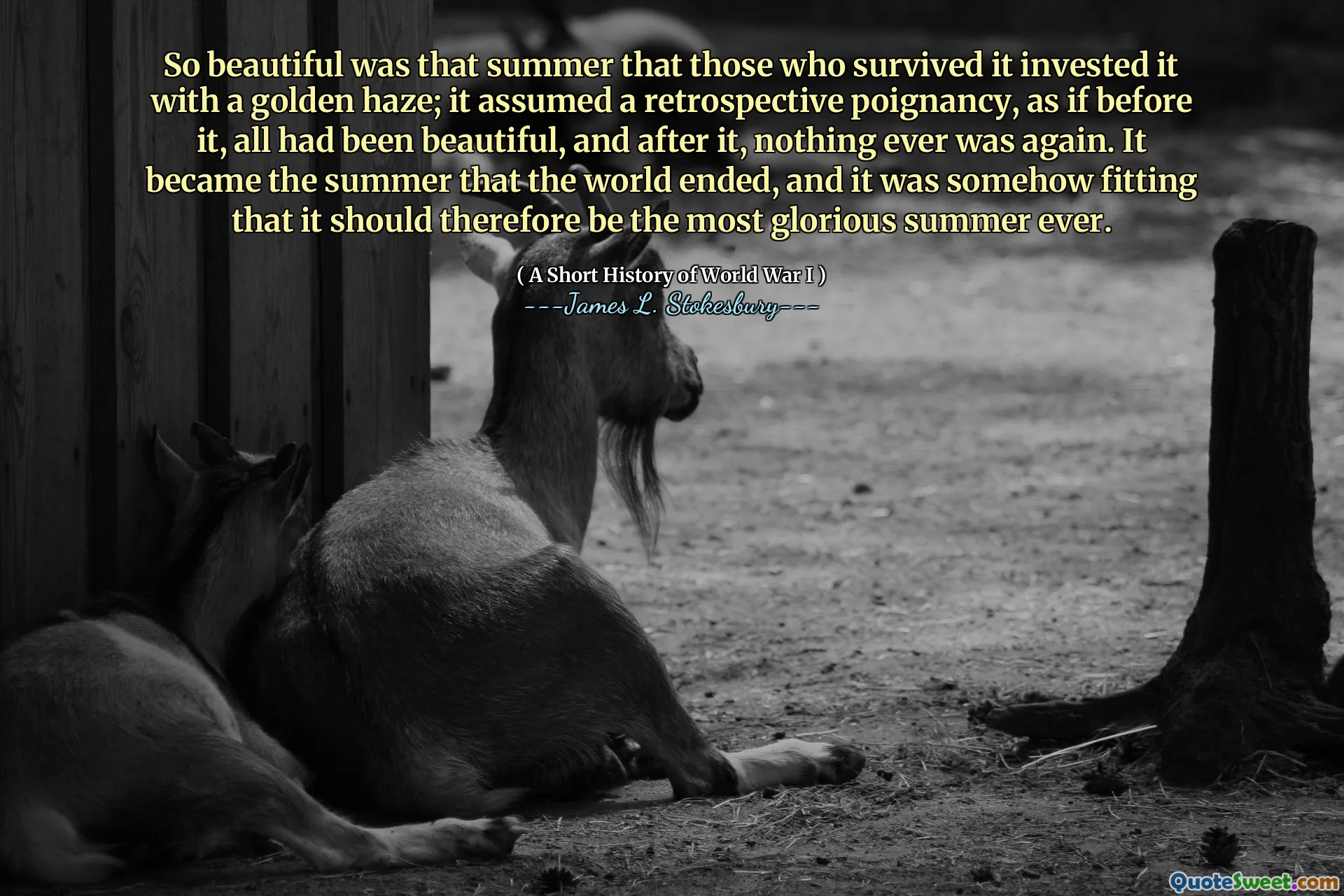
So beautiful was that summer that those who survived it invested it with a golden haze; it assumed a retrospective poignancy, as if before it, all had been beautiful, and after it, nothing ever was again. It became the summer that the world ended, and it was somehow fitting that it should therefore be the most glorious summer ever.
The quote reflects on a summer that stands out in memory as extraordinarily beautiful, contrasting sharply with the harsh realities that came before and after it. Those who experienced it viewed this season through a misty lens of nostalgia, as if it encapsulated a time when all was lovely and idyllic. This intense appreciation suggests a yearning for the past, highlighting how impactful this moment was compared to the rest of their experiences.
This summer takes on a symbolic significance, representing an ending amidst its beauty. Despite the chaos of the times, the allure of that summer made it feel like the pinnacle of beauty, forever etched in the minds of survivors. It is seen as fitting that amidst the backdrop of war and strife, the most remarkable summer immediately preceded a significant and tragic turning point in history, creating a poignant contrast between bliss and the impending doom.









